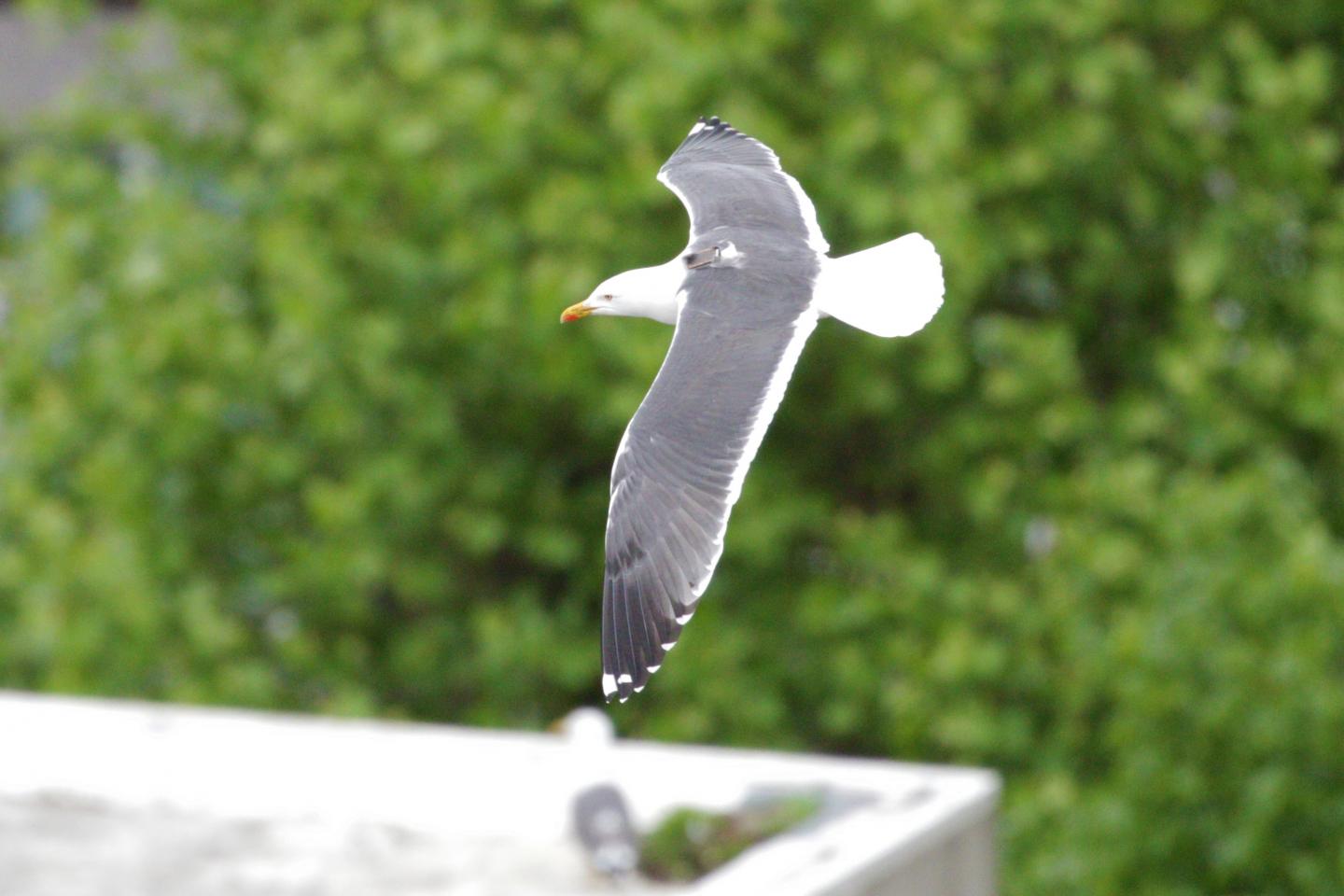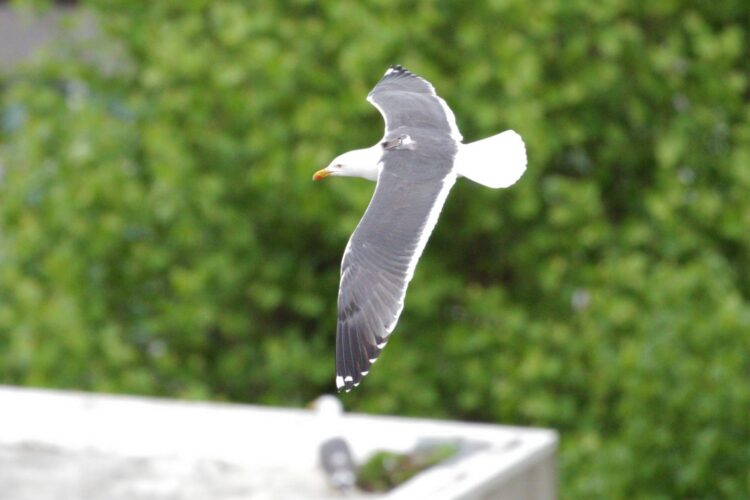Tiny GPS backpacks reveal long suspected truth: gulls know when & where to find human food

Credit: University of Bristol
If you’ve ever seen a seagull snatch a pasty or felt their beady eyes on your sandwich in the park, you’d be right to suspect they know exactly when to strike to increase their chances of getting a human snack.
A new study by the University of Bristol is the most in-depth look to date at the foraging behaviours of urban gulls and how they’ve adapted to patterns of human activity in a city.
In comparison to natural environments, urban environments are novel for animals on an evolutionary timescale and present a wide array of potential food sources. In urban environments food availability often fluctuates according to patterns of human activity, which can follow a daily or weekly cycle. However, until now, little has been known about how urban animals adapt to these time differences in human food availability.
A team of scientists from Bristol’s Faculties of Engineering and Life Sciences used different data to record the behaviour of urban gulls at three different settings in the city: a public park, a school and a waste centre. The study used data from mini GPS tracker backpacks fitted to 12 Lesser Black?backed Gulls, as well as observations of gull numbers at the different sites.
The team found the birds’ foraging patterns closely matched the timing of school breaks and the opening and closing times of the waste centre, but that their activity in the park appeared to correspond with the availability of natural food sources.
These findings suggest gulls may have the behavioural flexibility to adapt their foraging behaviour to human time schedules when beneficial, and that this trait helps them to thrive in cities.
Dr Anouk Spelt, lead author of the paper published in Ibis, the International Journal of Avian Science, said:
“Our first day at the school, the students were excited to tell us about the gulls visiting their school at lunch time. Indeed, our data showed that gulls were not only present in high numbers during lunch time to feed on leftovers, but also just before the start of the school and during the first break when students had their snack. Similarly, at the waste centre the gulls were present in higher numbers on weekdays when the centre was open and trucks were unloading food waste.
“Although everybody has experienced or seen gulls stealing food from people in parks, our gulls mainly went to park first thing in the morning and this may be because earthworms and insects are present in higher numbers during these early hours.”
Dr Shane Windsor, co-author, said:
“With this study in Bristol we have shown that gulls in cities are able to adapt their foraging schedule to make best use of food resources depending on their availability. Some gulls even used all three feeding grounds in the same day, suggesting they might track the availability to optimise their energy intake. These results highlight the behavioural flexibility of gulls and their ability to adapt to the artificial environments and time schedules of urban living.”
###
Media Contact
Shona East
[email protected]
Related Journal Article
http://dx.





